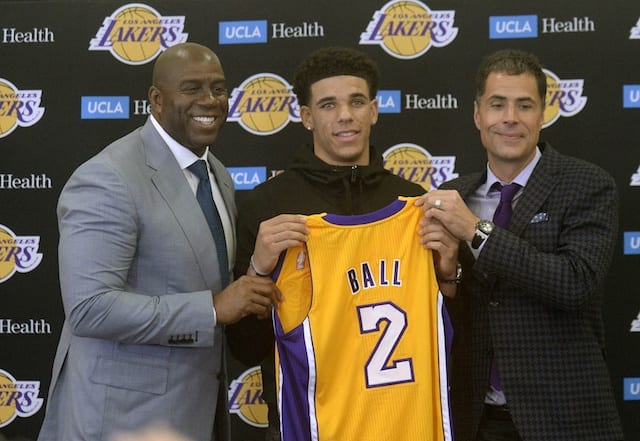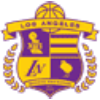Last week, Malcolm Brogdon of the Milwaukee Bucks was named the NBA’s Rookie of the Year after averaging 10.2 points, 4.2 assists, and 2.8 rebounds per game. Brogdon was solid, and he may enjoy a long and successful career, but his selection illustrates the fact that even the best first-year players are rarely capable of making more than a modest impact.
In 1959, Los Angeles Lakers rookie Elgin Baylor led his team from a last place finish the year before to an appearance in the NBA Finals. In 1980, as a rookie, Magic Johnson led his Lakers’ team to a championship. LeBron James finished his first season with averages of 20.9 points, 5.5 rebounds, and 5.9 assists – only the third rookie in NBA history to register such stats, and in his second season he was an Eastern Conference All-Star and an All-NBA First Team selection.
For every Baylor, Johnson, and James, however, there are a dozen first-year players on their way to All-Star careers who took time to develop into the dominant players they became. To name a few, the immense talent of players like Kobe Bryant, Russell Westbrook, Stephen Curry, Kyrie Irving, Anthony Davis, and Karl-Anthony Towns was obvious, but they did not dominate the league as rookies.
The Lakers have been awarded the number 2 pick in the draft three years in a row. Two summers ago, they chose D’Angelo Russell, who is no longer on the team. Russell may become a star one day, but as a rookie, he was tentative, immature both physically and mentally, and hardly ready for the NBA at all. He was awful in Summer League, inconsistent in training camp, and while he began the year as a starter, was demoted 20 games into the season.
Last summer, Brandon Ingram was the Lakers’ top pick. Touted by some as the next Kevin Durant, many experts had him pegged as the best prospect coming out of college. After Russell’s disappointing rookie season, the hope for Ingram was that he would more closely resemble what people think of as top-two talent. Instead, while he may one day become a superstar, Ingram was pushed around in Summer League and training camp and struggled to score all season.
The expectations are always high for players taken at the top of the draft. For Lonzo Ball, however, the Lakers’ top pick in this summer’s draft, the expectations are over the moon and the pressure beyond enormous.
There is Ball’s father, LaVar, who became a national celebrity over the past few months. Before his son was even drafted, he proclaimed that Lonzo was better than two-time MVP Stephen Curry. When Lonzo was chosen by the Lakers, the first thing LaVar did was guarantee that his son would lead the team to a playoff appearance in his first season – a tall order given that the Lakers have finished near the bottom of the NBA standings for four consecutive years.
Then there was Magic Johnson, who told Ball when he was introduced to the media that his jersey needed to one day hang on the wall next to the rest of the Laker greats. Johnson, the greatest point guard in NBA history, asked only one favor of Ball – that he not break all of his records. He told reporters that Ball was the face of the franchise and the team’s leader — Ball had not yet met a single one of his new teammates and had never been inside Staples Center in his life.

General Manager Rob Pelinka, who usually downplays expectations, referred to Ball immediately after the draft as a “transcendent talent.” That may be so, but the question is, will he be “transcendent” as a rookie? The way things are set up, anything less will be a crushing disappointment.
Ball will not have the luxury to start slowly like Russell or to struggle for much of the season like Ingram. It will not be enough that he shows potential and improves over the course of the year. Given the expectations created by his new team and his own father, Ball has to start strong and lead the Lakers into playoff contention from the very beginning. It will not be enough that he is very good, he must have the immediate impact of a Magic Johnson or Elgin Baylor.
The top rookies in league history have tended to be players who are bigger and stronger than everyone else, like Wilt Chamberlain, David Robinson, Tim Duncan, Shaquille O’Neal, Kareem Abdul-Jabbar, Hakeem Olajuwon, and Ralph Sampson, to name a few. On most ‘top rookie’ lists, there would be only be three or four guards: Magic Johnson, Michael Jordan, Oscar Robertson, and maybe Allen Iverson.
This is an elite list, but Magic Johnson and LaVar Ball have set it up so that Lonzo must join this list or be ridiculed. He can’t merely be good, promising, or show potential, he has to start great and stay great.

It is a very tall order, but there is, of course, some reason to believe that Ball can do it. He helped transform UCLA from a 15-win team to a 31-win team in his lone college season. He not only led the nation in assists per game, he shot 55% from the field and 41% from three point range. An often overlooked fact is that he received Honorable Mention in the Pac-12 for his play as a defender. He was a unanimous first team All-American, something no other freshman this past year achieved.
In high school, he averaged 25 points, 11 rebounds, 9 assists, 5 blocks, and 5 steals as a junior. In his senior year, he led his team to a perfect 35-0 record while averaging a triple double for the season.
Most importantly, due in no small part to his father’s relentless pursuit of publicity, Ball has lived in the spotlight for years. He is not overwhelmed by the enormous media attention he receives, nor is he a LaVar clone. Lonzo shows restraint, calmness, and poise whenever he is interviewed.

There are many very skilled basketball players in the college and professional ranks, measured by athleticism and individual statistics. What has people excited about Ball, however, is that he has always been that rarest of breeds: someone who makes the players around him better. For that reason, there was no other player like him in this year’s draft and it is hard to remember the last time someone entered the league with Ball’s perceived playmaking skills.
The decision to draft Lonzo Ball has made the Lakers a national storyline again. He brings attention and swagger to the organization, something the late Jerry Buss would have loved. The question now is whether he can deliver on the lofty expectations?
Fans will begin to get answers on July 7 when Ball suits up for the first time as an NBA player in Summer League. That game will be followed by contests against arch-rivals Markelle Fultz on July 8 and De’Aaron Fox on July 10. Such games are usually meaningless, but not this year: the entire basketball world will be watching. For the Lakers, one can only hope that Ball really is a transcendent talent and shows it from the very start.





